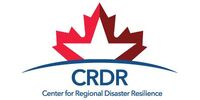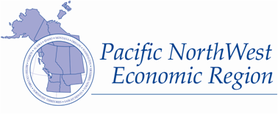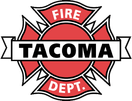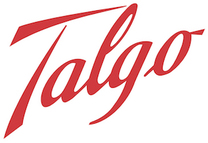Oil by Rail Transportation
Since 2012, the transportation of crude oil by freight rail has been rapidly increasing in Washington and other states in the Pacific Northwest. The spate of derailments in Canada and the U.S. has led to new regulations in oil train operations and tank car construction, along with an increased local desire for transparency and accountability in regards to oil train routing and scheduling. In order to address these issues, the Center for Regional Disaster Resilience has begun to explore oil freight rail transportation and safety as part of its Program Areas.
Resources
Panels and Presentations
SETTING THE STAGE
Kurt Reichert, Senior Project Manager and Vice President, HDR
Phillip Webber, Witt O'Briens, LLC
Tamara Nicholson and Susan Dixon, Director of Rail Office, Iowa Department of Transportation & Planning and Training Bureau Chief, Iowa Homeland Security
Jared Larrabee, General Manager, Vancouver Energy
OIL TRAIN SAFETY REGULATIONS, CURRENT AND PROPOSED
Moderated by: Jessyn Farrell, Washington State Legislature
Laureen Kinney, Assistant Deputy Minister, Transport Canada
Matthew Brewer, Deputy Regional Administrator, Federal Railroad Administration Region 8
Dale Jensen, Spills Program Manager, Washington State Department of Ecology
Jason Lewis, Transportation Policy Adviser, Washington State Utilities and Transportation Commission
LUNCHEON PRESENTATION
Eric Holdeman, Director, Center for Regional Disaster Resilience
EMERGENCY MANAGEMENT SPILL RESPONSE
Pat Brady, National Hazmat Director, BNSF
Dan Banks, Planning, Analysis, and Logistics Program Manager, Washington Emergency Management Division
Richard Schroedel, Supervisor, Planning and Mitigation &Recovery Section, Pierce County Emergency Management
Mike Mitchell, Assistant Chief, Tacoma Fire Department
Chad Hawkins, HAZMAT Rail Coordinator, Oregon Office of State Fire Marshal
ECOLOGICAL SPILL RESPONSE
Moderated by: Representative Gael Tarleton, Washington State Legislature
Laureen Kinney, Assistant Deputy Minister, Transport Canada
Dave Byers, Response Section Manager, Washington State Department of Ecology, Spills Program
Captain Joe Raymond, Sector Commander, United State Coast Guard
Calvin Terada, Emergency Response Unit Manager, EPA Region 10
PUBLIC OFFICIALS AND STAKEHOLDER RESPONSE
Clare Petrich, Commissioner, Port of Tacoma
Rep. Luis Moscoso, Washington State Legislature
Rep. Barbara Smith Warner, Oregon State Legislature
Rep. Hans Zeiger, Washingotn State Legislature
Rep. Matt Manweller, Washington State Legislature
Glen Bailey, Commissioner, Bonner County, Idaho
Herb Krohn, Washington State Legislative Director, United Transportation Union
Kurt Reichert, Senior Project Manager and Vice President, HDR
Phillip Webber, Witt O'Briens, LLC
Tamara Nicholson and Susan Dixon, Director of Rail Office, Iowa Department of Transportation & Planning and Training Bureau Chief, Iowa Homeland Security
Jared Larrabee, General Manager, Vancouver Energy
OIL TRAIN SAFETY REGULATIONS, CURRENT AND PROPOSED
Moderated by: Jessyn Farrell, Washington State Legislature
Laureen Kinney, Assistant Deputy Minister, Transport Canada
Matthew Brewer, Deputy Regional Administrator, Federal Railroad Administration Region 8
Dale Jensen, Spills Program Manager, Washington State Department of Ecology
Jason Lewis, Transportation Policy Adviser, Washington State Utilities and Transportation Commission
LUNCHEON PRESENTATION
Eric Holdeman, Director, Center for Regional Disaster Resilience
EMERGENCY MANAGEMENT SPILL RESPONSE
Pat Brady, National Hazmat Director, BNSF
Dan Banks, Planning, Analysis, and Logistics Program Manager, Washington Emergency Management Division
Richard Schroedel, Supervisor, Planning and Mitigation &Recovery Section, Pierce County Emergency Management
Mike Mitchell, Assistant Chief, Tacoma Fire Department
Chad Hawkins, HAZMAT Rail Coordinator, Oregon Office of State Fire Marshal
ECOLOGICAL SPILL RESPONSE
Moderated by: Representative Gael Tarleton, Washington State Legislature
Laureen Kinney, Assistant Deputy Minister, Transport Canada
Dave Byers, Response Section Manager, Washington State Department of Ecology, Spills Program
Captain Joe Raymond, Sector Commander, United State Coast Guard
Calvin Terada, Emergency Response Unit Manager, EPA Region 10
PUBLIC OFFICIALS AND STAKEHOLDER RESPONSE
Clare Petrich, Commissioner, Port of Tacoma
Rep. Luis Moscoso, Washington State Legislature
Rep. Barbara Smith Warner, Oregon State Legislature
Rep. Hans Zeiger, Washingotn State Legislature
Rep. Matt Manweller, Washington State Legislature
Glen Bailey, Commissioner, Bonner County, Idaho
Herb Krohn, Washington State Legislative Director, United Transportation Union
Media Coverage
KING 5 News: Oil train safety symposium draws crowd
KING 5 News: How safe are oil trains?
Emergency Management: An 'Aha' from the Oil Train Safety Symposium
Full coverage of the Oil Train Safety Symposium provided by TVW
KING 5 News: How safe are oil trains?
Emergency Management: An 'Aha' from the Oil Train Safety Symposium
Full coverage of the Oil Train Safety Symposium provided by TVW
Oil Train Safety in the News
2017
- States push for stronger oil train limits - The Hill, 5/22/17
- How do you plan for an oil spill on the Sumas River?, Bellingham Herald, May 16, 2017
- Vancouver Oil Terminal Project Makes Big Bet on Oil Train Safety, KUOW, October 10, 2016
- Shell calls off rail unloading facility project - Skagit Valley Herald, Oct. 6, 2016
- In Second Attempt at Oil Train Regulation, Spokane City Councilman targets Rail Car Owners - KUOW, Oct. 6, 2016
- Canada safety watchdog says action needed on train crew fatigue - Reuters, 10/31/16
- Canada pulls DOT-111 rail cars from crude oil service - Progressive Railroading, 11/1/16
- Memo To Spokane City Council Says Proposed Oil Train Ballot Initiative Isn't Legal - Northwest News Network, 11/3/16
- Canada's Garneau lays out transportation agenda, backs onboard recording devices - Progressive Railroading, 11/4/16
- Wasco County rejects Union Pacific request to expand - 11/5/16
- Port oil facility would create longer delays at train crossings - The Daily World, 11/9/16
- Washington state seeks comment on oil-spill response plan - Progressive Railroading, 11/15/16
- Elected officials in Northwest urge state, federal lawmakers to contain oil train threat - Q13 Fox, 11/14/16
- Mosier derailment's costs adding up: Union Pacific estimates partial costs of near $9 million - The Columbian, 12/1/16
- Union Pacific Will Appeal Decision That Blocks Rail Expansion in Mosier, Oregon - KUOW, 12/13/16
Oregon Oil Train Derailment:
Oregon Oil Train Derailment:
- FRA Prelimary Fact Findings Report
- KING 5 News: Railroad Blamed for Fiery Oil Train Derailment in Oregon
- NPR Oregon: State Differences in Oil Train Safety Legislation
- KUOW (Aug. 11, 2016): The Best Of A Worst Case Scenario: How Bad Could The Mosier Oil Train Spill Have Been?
- Disaster Zone: Lessons from the Oil Train Spill at Mosier, Ore.
Additional Resources
- Sen. Maria Cantwell's Crude-By-Rail Legislation
- "In Signing Oil Train Safety Bill, Inslee Says It’s Not Enough to Make Seattle Safe" - Seattle Weekly
- "State finally getting satellite-based train controls, 20 years after fatal crash" - Seattle Times
- "In compromise, Washington state oil safety legislation focuses on crude-by-rail" - Bellingham Herald
Oil and Petroleum Commodities
"Origins and Destinations" Transportation Session at 2017 PNWER Annual Summit
|
Each year, business leaders, legislators and government leaders from PNWER's ten states, provinces, and territories, gather to address the major policy issues impacting the region.
The 2017 PNWER Annual Summit, July 23-27 featured over 20 sessions focusing on some of the most pressing economic issues surrounding energy, tourism, agriculture, invasive species and more. The full meeting agenda, speaker bios, presentations, working group session notes, and media link is available here. Associated Webinar: 2017 PNWER Annual Summit "Oil and Petroleum Commodities" Transportation Working Group Session
Click here to RSVP for the "Oil and Petroleum Commodities" Transportation webinar session Click here to RSVP for the "Innovative Finance" Infrastructure webinar session |
Welcome and Overview of Transportation Group Work Plan
Oil and petroleum based commodities are extracted and transported to West Coast refineries and shipped to export markets through the environmentally sensitive Salish Sea. Product comes from Alaska, Alberta and North Dakota by pipeline, rail, tankers and barges. Previous PNWER Transportation Group sessions have explored rail safety; this session will expand our view to learn more about global energy developments that affect how and when the commodity travels from its source to its refinement or export. Introductory Remarks
Update of Oil Movement in Washington State
Canada Action - Ocean Protection Plan
Markets and Exports: Global Picture for Movement of Oil
Mode Overview Operators overview the transportation of oil to market and their safety measures. Panel will discuss the impact of global markets on capacity. Moderated by Robin Rorick, Group Director of Midstream and Industry Operations, American Petroleum Institute
Update on Vancouver Energy Terminal
Legislative Response Panel Moderated by Jay Derr, Partner, Van Ness Feldman and Robin Rorick, Group Director of Midstream and Industry Operations, American Petroleum Institute
|
Oil Train Safety Symposium
Pacific Northwest Economic Region (PNWER) and the Center for Regional Disaster Resilience (CRDR) hosted an Oil Train Safety Symposium at Clover Park Technical College in Lakewood, Washington on April 27, 2016. The Transportation Working Group, co-chaired by Sen. Chuck Winder, Idaho, and Bruce Agnew, Director, Cascadia Center for Regional Development, has addressed oil by rail concerns at recent PNWER meetings. View the PNWER's Transportation Working Group page for further information and links to past presentations.
Thank you to all of the 196 attendees who participated in our Oil Train Safety Symposium! The event, held April 27, 2016 in Lakewood, Washington, was a great success and drew representatives from a multitude of jurisdictions and disciplines: railroads, ports, emergency management, legislators from multiple states, Canadian officials, and federal agencies like the National Weather Service and the Department of Homeland Security. Presentations from 17 speakers gave the audience an overview of oil-by-rail in the region, explained current and proposed oil train safety regulations, reviewed public safety planning for incidents, examined local capabilities for ecological spill response and gave responses from legislators and public officials.
This symposium provided a comprehensive overview of the current and future status of oil by rail transportation and emphasize partnerships to help ensure oil transport safety is being addressed across the region. By fostering dialogue between public and private sector entities, PNWER and CRDR hope to increase mutual understanding of oil train safety issues in a broad and holistic manner by including stakeholders from all parts of the supply chain both in the U.S. and Canada. The Symposium topics include an overview of the transportation of hazardous material by rail, the driving factors behind the rise of oil transportation by rail, potential safety hazards, incident response, and planning for future movement of other fuel products. Background information regarding the transport of crude oil by rail and other informational resources can be found below:
Thank you to all of the 196 attendees who participated in our Oil Train Safety Symposium! The event, held April 27, 2016 in Lakewood, Washington, was a great success and drew representatives from a multitude of jurisdictions and disciplines: railroads, ports, emergency management, legislators from multiple states, Canadian officials, and federal agencies like the National Weather Service and the Department of Homeland Security. Presentations from 17 speakers gave the audience an overview of oil-by-rail in the region, explained current and proposed oil train safety regulations, reviewed public safety planning for incidents, examined local capabilities for ecological spill response and gave responses from legislators and public officials.
This symposium provided a comprehensive overview of the current and future status of oil by rail transportation and emphasize partnerships to help ensure oil transport safety is being addressed across the region. By fostering dialogue between public and private sector entities, PNWER and CRDR hope to increase mutual understanding of oil train safety issues in a broad and holistic manner by including stakeholders from all parts of the supply chain both in the U.S. and Canada. The Symposium topics include an overview of the transportation of hazardous material by rail, the driving factors behind the rise of oil transportation by rail, potential safety hazards, incident response, and planning for future movement of other fuel products. Background information regarding the transport of crude oil by rail and other informational resources can be found below:
|
Topics
|
Audience
|
Oil Train Safety Symposium Photos
We are grateful for the support of the following partners:








